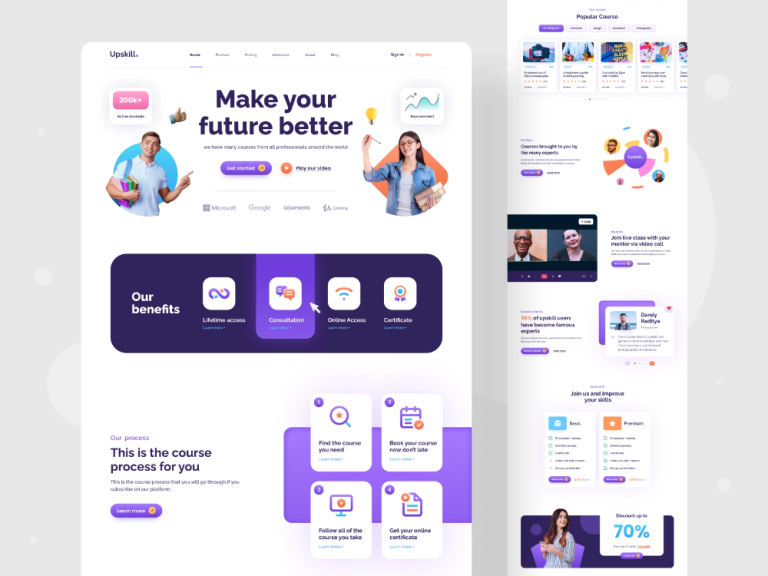The Power of Anon Sharer: A Cloak of Online Anonymity
Anon Sharer: In today’s digital age, the internet has become an integral part of our lives, shaping how we communicate, share information, and express ourselves. With the vast array of online platforms available, the need for privacy and anonymity has become increasingly important. This is where the concept of an “anon sharer” comes into play, offering individuals a cloak of online anonymity to share their thoughts, experiences, and ideas without fear of repercussions. In this article, we will explore the power of anon sharers, their benefits, and potential drawbacks.
What Is an Anon Sharer?
An anon sharer is a term used to describe a person or entity who shares content, typically text-based, on the internet while remaining anonymous. This anonymity can be achieved through various means, such as using pseudonyms, anonymous social media accounts, or online forums that do not require users to reveal their real identities. The primary goal of an anon sharer is to share thoughts, opinions, stories, or information without the risk of personal exposure or consequences.
The Benefits of Anon Sharers
- Freedom of Expression: Anonymity empowers individuals to freely express their thoughts and opinions without the fear of judgment, discrimination, or retaliation. This is particularly important in environments where expressing dissenting views may lead to negative consequences.
- Whistleblowing: Anon sharers have played a crucial role in exposing wrongdoing and corruption in various fields, from corporate scandals to government misconduct. Whistleblowers can use online anonymity to protect themselves while revealing important information to the public.
- Mental Health Support: Anonymous platforms offer a safe space for people to discuss their mental health issues, seek advice, and share personal experiences without revealing their true identities. This can be particularly valuable for individuals facing stigmatized or sensitive issues.
- Privacy Protection: In an age of digital surveillance and data collection, an anon share can maintain their privacy and safeguard personal information from potential misuse or exploitation.
The Drawbacks of Anon Sharers
- Abuse and Harassment: The cloak of anonymity can also be misused for nefarious purposes, such as cyberbullying, harassment, or spreading false information without accountability.
- Lack of Credibility: Anon sharers may face skepticism regarding the credibility of their claims due to the absence of verifiable identities. This can undermine the impact of their messages.
- Erosion of Trust: In some cases, the prevalence of anonymous content sharing can erode trust in online communities, making it challenging to distinguish genuine contributions from trolls or malicious actors.
- Legal and Ethical Concerns: Anonymity can raise legal and ethical questions, especially when it comes to issues like copyright infringement, hate speech, or incitement to violence.
The Balance Between Anonymity and Responsibility
While the power of anon sharers is undeniable, it is crucial to strike a balance between anonymity and responsibility in the digital realm. Online platforms must implement measures to combat abuse and harassment while protecting users’ privacy rights. Anon sharers, in turn, should use their anonymity responsibly, understanding that their actions can have real-world consequences.
features of anon sharer
Anon sharer platforms, websites, or tools come in various forms, each offering its own set of features to facilitate anonymous sharing of information, opinions, and content. Here are some common features often associated with anon sharer platforms:
- Anonymous Posting: Users can create and share content without revealing their real identities. This can include text, images, videos, or links.
- Pseudonyms: Many anon sharer platforms allow users to create pseudonyms or usernames to maintain a level of consistent identity without using their real names.
- No Registration: Some platforms don’t require users to create accounts or register with personal information, offering complete anonymity from the start.
- Encryption: To enhance privacy and security, some anon sharer platforms implement end-to-end encryption to protect user data and messages.
- Time-Limited Content: On some platforms, content may be temporary and automatically deleted after a certain period, promoting transient anonymity.
- Community Moderation: To maintain a safe and respectful environment, anon sharer platforms often have community-driven or algorithmic moderation systems to filter out inappropriate or harmful content.
- User Reporting: Users can report abusive or harmful content, which may then be reviewed by platform administrators.
- Content Categories: Platforms may organize content into categories or topics, making it easier for users to find and explore relevant content.
- Voting or Rating Systems: Users can upvote or downvote content, helping to surface the most relevant or popular posts within the platform.
- Commenting and Interaction: Users can engage with content by leaving comments or replies while still maintaining their anonymity.
- Search Functionality: Users can search for specific content or keywords within the platform.
- Tagging: Content can be tagged with keywords or categories for better organization and discoverability.
- Private Messaging: Some anon sharer platforms allow users to send private messages to each other without revealing their identities.
- Identity Verification (Optional): While most anon sharer platforms prioritize anonymity, some may offer optional identity verification methods to enhance trust among users.
- Dark Mode: Aesthetic options like dark mode can be available for user customization.
- User Blocking: Users can block or mute other users to prevent unwanted interactions.
- Reporting Tools: In addition to reporting content, some platforms allow users to report specific users for abusive behavior.
- Search Filters: Users can apply filters to their search results to refine the content they see.
- Geolocation (Optional): Some platforms may offer optional geolocation features, allowing users to share their general location without revealing their precise identity.
- Anonymity Tips and Guidelines: Many anon sharer platforms provide guidelines and tips on how to maintain anonymity and stay safe online.
It’s important to note that the availability of these features may vary from one anon sharer platform to another. Additionally, some platforms may prioritize specific features over others depending on their target audience and purpose, whether it’s for open discussion, support communities, or whistleblowing. Users should exercise caution and use these platforms responsibly, respecting both their own anonymity and the rights and privacy of others.

Conclusion
Anon sharers serve as a vital component of the internet’s fabric, providing a haven for free expression, whistleblowing, and support for those in need. However, like any tool, anonymity can be used for both constructive and harmful purposes. As we navigate the evolving digital landscape, it is essential to continue discussions around responsible online behavior and the preservation of online anonymity as a force for good.
FAQS
Here are some frequently asked questions (FAQs) related to anon sharer platforms and the concept of online anonymity:
1. What is an anon sharer?
- An anon sharer is an individual or entity that shares content, thoughts, or information online while maintaining anonymity or using a pseudonym, without revealing their true identity.
2. Why do people use anon sharer platforms?
- People use anon sharer platforms to express their thoughts, opinions, or experiences without fear of judgment or retaliation, to whistleblow on wrongdoing, seek mental health support, or protect their privacy.
3. Are anon sharer platforms completely anonymous?
- While anon sharer platforms strive to provide anonymity, complete anonymity is challenging to guarantee. User actions and content can sometimes be traced back through various means, so users should exercise caution.
4. Are there legal consequences for using anon sharer platforms?
- Using anon sharer platforms is generally legal, but the content shared may be subject to legal scrutiny. Posting illegal content or engaging in harmful activities can lead to legal consequences.
5. How do anon sharer platforms protect user privacy?
- Anon sharer platforms may use encryption, not require personal information during registration, and implement content moderation to protect user privacy. However, users should still be cautious about sharing sensitive information.
6. Can I trust information from anon sharer platforms?
- The credibility of information from anon sharer platforms can vary. Users should critically evaluate information and consider the source’s reputation when assessing its reliability.
7. How can I report abusive or harmful content on anon sharer platforms?
- Most anon sharer platforms have reporting features that allow users to flag inappropriate content. Reporting helps maintain a safe and respectful environment.
8. Are anon sharer platforms safe for minors?
- Anon sharer platforms can pose risks to minors, including exposure to inappropriate content or interactions. Parental supervision and guidance are recommended for young users.
9. Can I reveal my identity on an anon sharer platform if I want to?
- Yes, some anon sharer platforms offer the option to reveal your identity voluntarily, but users should do so with caution and understand the potential consequences.
10. How do I stay safe while using anon sharer platforms? – To stay safe, users should avoid sharing sensitive personal information, be cautious about engaging with strangers, report abusive behavior, and use strong and unique passwords.
11. Can I use anon sharer platforms for whistleblowing or reporting unethical activities? –
Yes, anon sharer platforms can be a tool for whistleblowing, but users should carefully assess the platform’s security and legal implications before doing so.
12. Are there different types of anon sharer platforms for specific purposes? –
Yes, anon sharer platforms can serve various purposes, such as open discussion, mental health support, or exposing wrongdoing. Different platforms cater to different needs.
13. Is it possible to trace or identify users on anon sharer platforms? –
While anon sharer platforms prioritize user anonymity, in some cases, user actions and content can be traced back through various means, including IP addresses and metadata.
14. Are there age restrictions for using anon sharer platforms? –
Age restrictions vary by platform. Some may require users to be of a certain age or have parental consent, while others may not have specific restrictions.
15. How can I find anon sharer platforms? –
Anon sharer platforms can be found through internet searches, app stores, or recommendations from online communities, but it’s essential to verify the platform’s legitimacy and reputation.
Remember that using anon sharer platforms responsibly and ethically is crucial to ensure a positive and safe online experience for both yourself and others.
Also read:Anon Sharer
Unveiling the Mysteries of the OSI Model: Your Journey Through Seven Layers of Networking Magic







